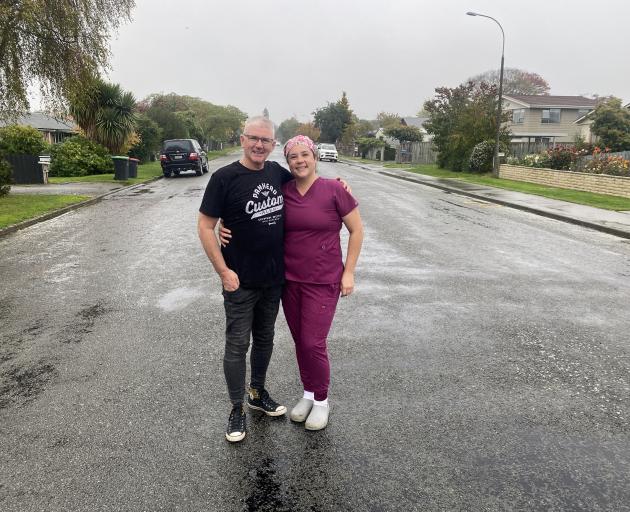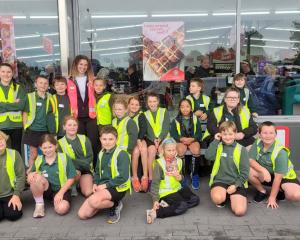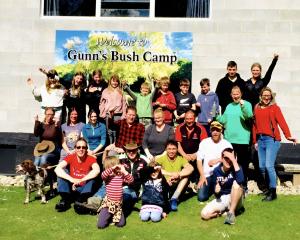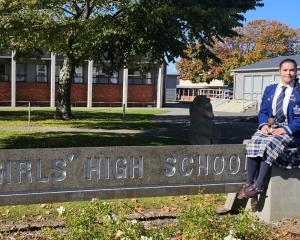
For the children it was because they ate ice cream for breakfast.
However, parents will remember the February camp for entirely different reasons.
While the children were watching a movie with their treat, the adults were outside doing their very best to keep one dad alive.
Alastair Bolland had gone to stay the night with his youngest son Marlo while his wife Anna had accompanied their oldest son Finn to the school’s longer camp.
He said there had been some banter with his workmates the day before that the 54-year-old would be back the next day "really well-rested" after sleeping on a 4cm thick camp mat.
Mr Bolland said he woke up short of breath, with chest pain and pain in his left arm.
"I knew what it was."
A year before he had been driven home from work with low blood pressure but by the time he could get an appointment with his doctor his blood pressure had returned to normal.
There had been no magical cure.
He had made changes to his life including adding more fibre and exercise, but the feeling had lingered.
However, this — he said — was the worst he had ever felt.
Mr Bolland said when he crawled out of his tent, the grass below him was swirling around like a magic eye picture.
He called out "help", but it came out only slightly louder than a whisper.
The pain escalated, and as he fell to the ground he managed to call out again, this time loud enough to get attention from a mother nearby.
He said he went in and out of consciousness from that point.
Jane Merry had been pondering what pair of pants to wear that day, but little did she know, regardless which pair she chose, they were going to be soaked on the wet grass.
She came out to find Mr Bolland on the ground while other parents were organising an automatic external defibrillator (AED) and calling emergency services.
As no-one had wanted to alarm the children, the parents had managed to keep the scene under wraps.
Ms Merry was an off-duty hospital-based registered nurse midwife and while she had performed CPR on babies, she had never performed it on a full grown adult.
Despite her experience, she said it was daunting to be confronted by a cardiac arrest in the community, with no other staff around her, no bells to call for assistance or access to hospital gear.
Ms Merry had done refreshers on CPR every year, and while Covid-19 had put an end to the mouth-to-mouth, she said while she was doing the compressions, she looked at him and "he was purple".
She knew he was not choking, so she threw caution to the wind and started rescue breathing.
She said statistics showed survival from a heart attack in the community was very low.
What was improving outcomes was AED and people accessing and using them before the paramedics arrived.
Out of 2000 people having an out-of-hospital cardiac arrest each year, only 25% had a pulse when they arrived at the hospital, and only 11% of patients survived.
Only 5% of those out-of-hospital cardiac arrests received defibrillation by a community responder before the ambulance arrived.
Ms Merry wanted to also stress the importance to others in the area of CPR.
"Realise that you have to get a paramedic out from Timaru, and it takes 40 minutes.
"So what are you going to do for 40 minutes?
"With everyone around here?
"You’ve just got to give it a crack."
And give it a crack she did, with the help of a couple of the fathers who also took turns with CPR.
Mr Bolland sustained a bunch of broken ribs and a buckled sternum.
Hospital staff in Christchurch had told him if he had not had a rib broken he would not be alive.
Once the Geraldine Volunteer Fire Brigade and St John ambulance arrived, Mr Bolland received medication to help unblock the clot, which had to be injected into his shin bone.
He could recall eventually coming back to consciousness while receiving shocks from a defibrillator, and said some salty language crossed his lips.
He said he told them, "Don’t! That really hurts!"
He said after 11 or 12 shocks he heard a crackle and felt two double shocks and, "I’ve been alive ever since".
He was escorted to the Westpac Rescue Helicopter as low fog had prevented it from landing closer to him.
Once the helicopter landed at Christchurch Hospital he said the crew receiving him were like a Formula One team.
From the moment they X-rayed his heart till the moment he had a stent inserted and was X-rayed again took only 18 minutes.
As for Ms Merry, she had popped into the hospital in Christchurch to see him two days later.
Mr Bolland said he had "rudely" fallen asleep, when he woke up she had said "OK, ... I better go then."
He could not believe the social faux pas he had made.
"She saved my life and I fell asleep!"
But Ms Merry said looking at him while he was in his hospital bed was surreal.
"People surviving a community arrest, is like seeing a ghost.
"Like you shouldn’t be alive."
He said he could not stop thinking about how lucky he was that he was on camp when he had the cardiac arrest.
Usually at that time of the day he would be driving to work.
"The guts of this is, someone was there.
"I couldn’t fault any of the healthcare system in New Zealand."
Nor could he fault the volunteer fire brigade, and St John ambulance staff.
"They dealt with a very complex situation and managed to bring me back to life."
While he does not recommend having a heart attack, he said it had strengthened friendships and the community around him.
He said trauma made him reprioritise his life.
"It makes you see that some problems aren’t that big.
"I really couldn’t have had my life saved by a lovelier person."












